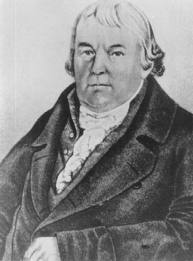Hypnotize Me

Skeptics are still fighting the specter of Franz Anton Mesmer.
I just caught a particularly intriguing article on hypnosis, at Scientific American, covering a study performed by neuroscientists at the Weizmann Institute in Israel. The study seeks to demonstrate just how powerfully hypnotism effects brain activity. And indeed, Scientific American portrays the study as presenting a (further) challenge to anyone who still seeks to deny that hypnotism is, in every meaningful sense, “real.”
This last sentence might strike some as odd. Of course, hypnotism must be real. In fact, even the National Institutes of Health (NIH) has declared hypnotherapy a valid treatment for chronic pain. But Hypnosis, long associated with Franz Anton Mesmer’s debunked claims of “animal magnetism“, remains a controversial topic. And over the years, a steadily growing pile of well-constructed, replicable experiments has done little to quell the skeptics.
There are studies demonstrating hypnosis can be an aid to learning, that it can greatly reduce pain, and that it can dramatically reduce anxiety. PubMed includes more than 12,000 studies on hypnosis now, in various forms, with an impressive array of positive results. But skeptics of hypnotism remain unmoved. In fact, this little treasure can be found at “Skepdic”.
“While it is true that some hypnotherapists can help some people lose weight, quit smoking, or overcome their fear of flying, it is also true that cognitive-behavioral therapy (CBT) can do the same without any mumbo-jumbo about trance states or brain waves. There have been many scientific studies on the effectiveness of CBT. For example, one systematic study found that CBT improves weight loss in people who are overweight or obese.”
In all, it is an alarmingly selective and dismissive little tract—dealing with a small number of studies and seeking to explain away any positive results obtained by hypnosis therapy. (At a time like this, I should point out that the “skepdic” moniker actually stands for “Skeptic’s Dictionary.” The unfortunate phonetic pronunciation is, one presumes, an unfortunate coincidence or a kind of sly wink from the skeptical side of the aisle.) And I believe even this new study will fail to convince a skepdic.
I’ll leave you to get the details from Scientific American. But here is an admittedly brief and simplified summary: People who had demonstrated a prior capacity to respond to a post-hypnotic suggestion were shown a movie and told beforehand, under hypnosis, to forget the film until they heard a specific cancellation cue. After hearing the cue, the memories should “come back” to them.
The subjects were then asked about the film while in an fMRI scanner, measuring their brain activity. The results seemed to demonstrate that, due to the hypnosis session, activity in the occipital lobes—responsible for visualizing scenes—was suppressed. The researchers then “canceled” the directive to forget the movie. The details were now accessible to the study subjects, and activity in the occipital lobes correspondingly increased.
This would seem to present a clear physiological effect. Though perhaps a skepdic might argue that the subjects, merely due to the power of suggestion, didn’t really try and recall the details of the movie until they received their audio cue. But my favorite part of the Scientific American article is this:
“Mendelsohn et al.’s study is important because it demonstrates that hypnotic suggestions influence brain activity, not just behavior and experience. Hypnotic effects are real! This fact has been demonstrated clearly in earlier work, for instance, by psychologist David Oakley (University College London) and colleagues, who compared brain activation of genuinely hypnotized people given suggestions for leg paralysis with brain activation of people simply asked to fake hypnosis and paralysis.”
There are a couple of problems here. One, the idea that it takes a brain scan to reveal a subjective experience as “real” is highly suspect. The effects of hypnosis have always been “real,” in the sense that people have responded to hypnosis for pain, anxiety and phobias. The question has been the cause. And the truth is, this latest study will likely do very little to move the needle, culturally speaking.
The Oakley study referenced here was itself published in 2003, nine years ago. (Scroll down to “Differential hemispheric activation for feigned and subjectively ‘real’ paralysis. Cognitive Neuropsychiatry, 8(4), 295-312″ at this link.) And I am left thinking that the entire “controversy” surrounding hypnosis reflects something my friend Alex Tsakiris, at Skeptiko, often says: “It’s not about the data.”
We’re talking about worldviews here. And to the committed skepdics, hypnotism has been on the outside looking in for so long that, seemingly, no study can convince.
Steve Volk's Blog
- Steve Volk's profile
- 18 followers



